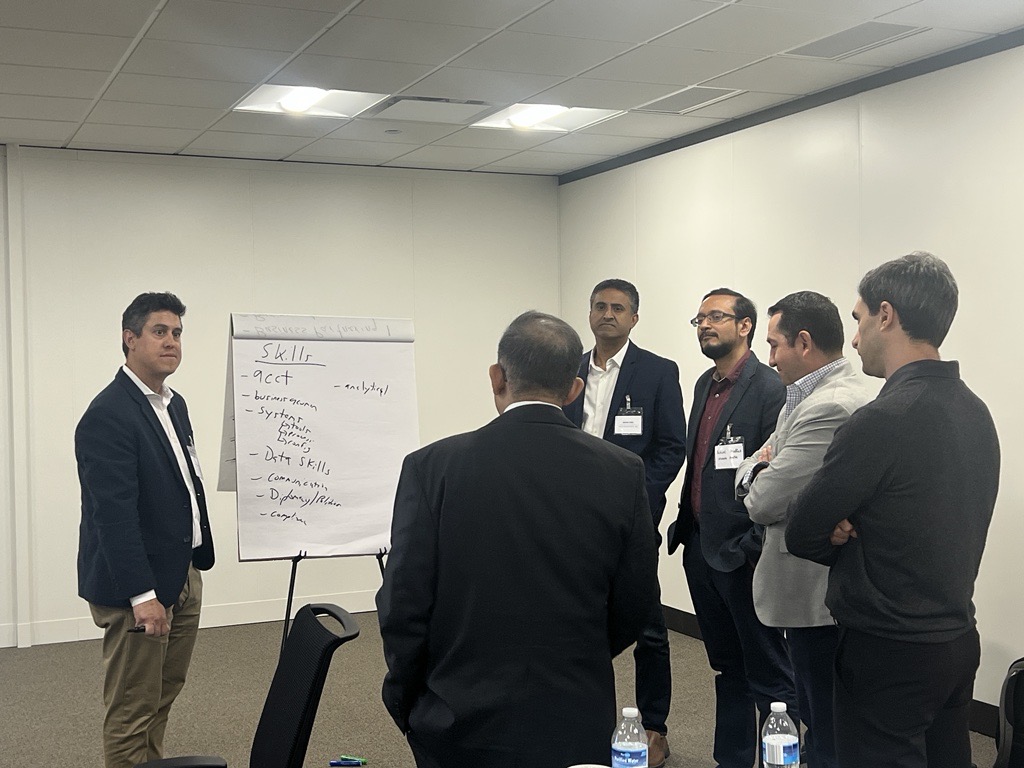Introduction
Over the past decade, the role of Financial Planning and Analysis (FP&A) professionals has evolved significantly, transforming them from number-crunchers into strategic Business Partners. Their primary responsibility is to translate complex data into actionable insights, empowering organizations to make informed decisions. As data complexity increases and management and stakeholders' expectations rise, FP&A teams must continually refine their skills. This includes honing technical expertise in data analysis, visualization, and modeling, along with developing soft skills in communication and storytelling.

Figure 1: Chicago FP&A Board Members (June 2023)
These essential skills and strategies for building top-notch FP&A teams took center stage at the International FP&A Board meeting held in Chicago on June 7th, 2023. Distinguished FP&A professionals from diverse industries gathered at the Regus office to share their experiences and best practices. They also cited the following critical factors for constructing effective and synergistic FP&A Teams:
- Agility: The ability to adapt swiftly to changing circumstances and data, ensuring the FP&A team remains responsive and relevant.
- Strong Communication Skills: Effective communication is vital for conveying insights and analyses clearly to stakeholders across the organization.
- Storytelling: FP&A professionals must develop the skill of crafting compelling narratives around their data-driven insights to make a meaningful impact on decision-makers.
- Integrity: Upholding ethical standards and maintaining data accuracy and transparency are fundamental for building trust in the FP&A team's outputs.
- Business Partnering: Collaboration with various business units to align financial planning with strategic objectives and contribute to overall organizational success.
- Personal Interest of People: Displaying genuine care and interest in team members fosters a positive and motivated work environment.
- Earned Credibility: Establishing credibility through consistent delivery of accurate and valuable insights, thereby gaining trust from stakeholders.
The meeting facilitator, Larysa Melnychuk, led the discussion, and attendees deep-dived into the five emerging roles identified by the International FP&A Board:
- Analyst: This role centers on traditional FP&A tasks, such as analysis, reporting, forecasting, planning, and investment evaluation.
- Data Scientist: Responsible for leveraging data models, advanced analytics (AI/ML), and statistical techniques to identify trends and optimize data-driven processes.
- Architect: Acts as a bridge between Finance and IT departments, designing and implementing FP&A systems and ensuring seamless integration.
- Storyteller: Communicates FP&A insights effectively to stakeholders through reports, presentations, and other communication channels.
- Influencer: Utilizes analytics and insights to influence business decisions, even without direct authority.
Group Work

Figure 2: Group Work During Chicago FP&A Board (June 2023)
The interactive group discussions provided valuable insights for building robust FP&A teams. Three groups discussed leadership, business partnership, and essential functional skills. Notable findings from the group sessions included:
Leadership:
- Demonstrating personal interest in team members.
- Building credibility through consistent and reliable performance.
- Establishing a clear vision for the FP&A team's growth and success.
- Making decisive decisions.
- Cultivating strong communication skills for effective leadership.
Business Partnering:
- Nurturing intellectual curiosity to deepen understanding of the business.
- Developing robust business acumen to enhance partnerships with other departments.
- Embracing Change Management to navigate evolving business needs.
Crucial FP&A Skills:
Attendees learned the importance of enhancing technical and digital skills within a functionally skilled FP&A team to unlock its true potential. Key takeaways included improving communication skills, understanding available data, and strengthening risk management capabilities.
Moreover, FP&A leaders should proactively assess their organization's maturity level to identify areas for improvement and chart a roadmap for continuous enhancement. The International FP&A Board offers a helpful maturity model for this purpose.

Figure 3: Chicago FP&A Board Members (June 2023)
Our Sponsors
We would like to extend a special thank you to SAP for sponsoring this event. IWG, thank you for hosting it.






